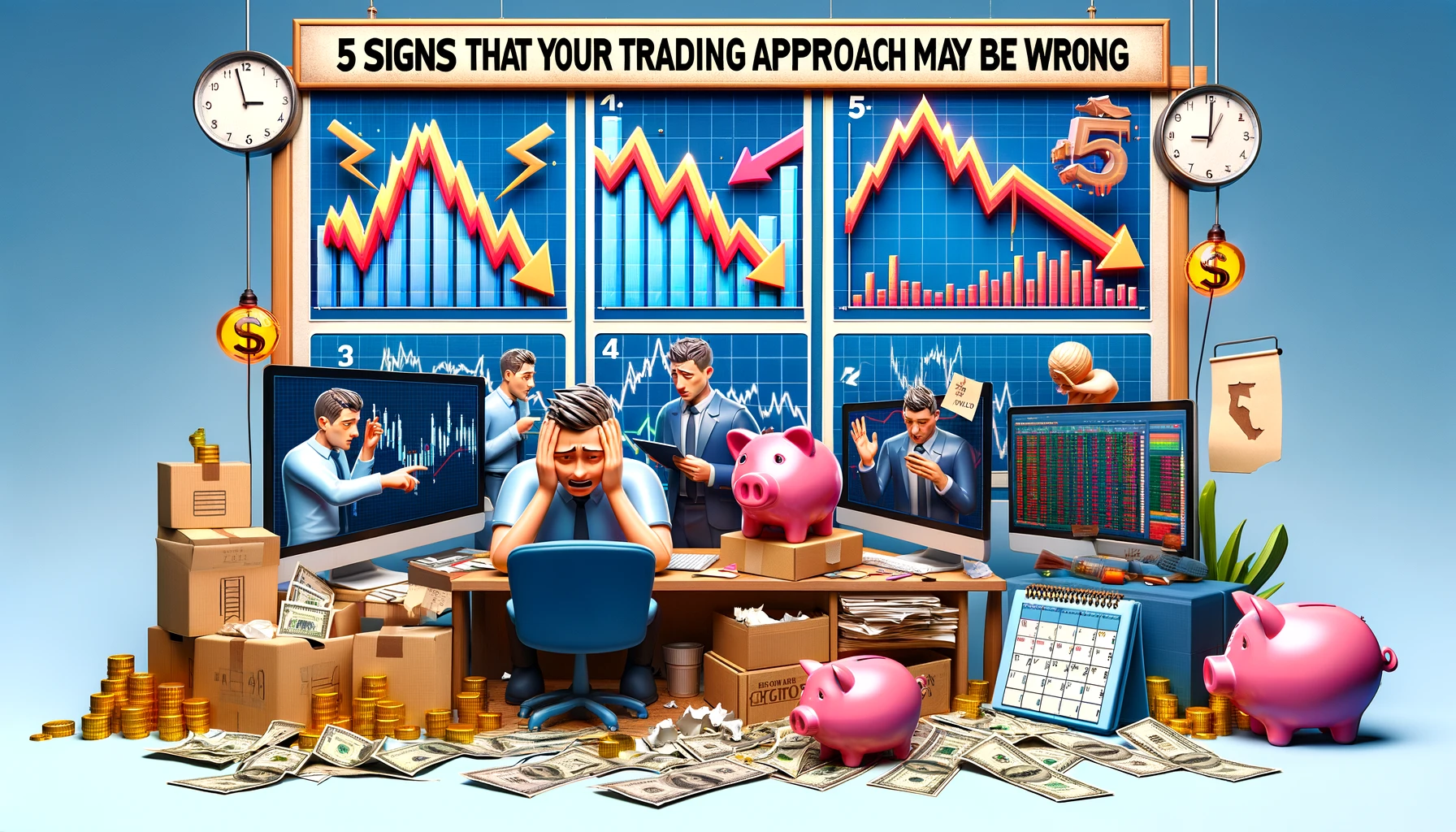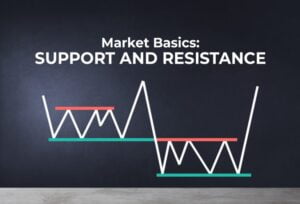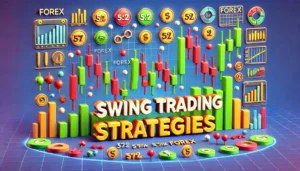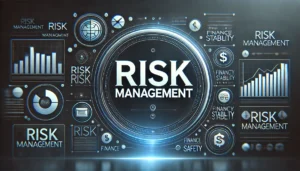The foreign exchange market holds the unparalleled distinction of being the most liquid market globally, with an astounding daily trading volume stretching into trillions. Such immense liquidity provides numerous opportunities, attracting a multitude of traders each day. However, due to its complex nature, traders who hastily plunge into this domain without the right preparation or strategy can find themselves caught up in costly errors.
If you are a part of the forex world, it is essential to identify and correct possible missteps early. Here are some telltale indications that your forex trading approach may need some serious adjustments.
Table of Contents
Toggle1. You are trading without a solid plan
A trading plan is essentially a blueprint that guides a person’s trading activities. This guide, when thoroughly thought out, aids in maintaining discipline, mitigating impulsive behavior, and managing risks effectively.
Trading without a solid plan is detrimental because it leaves you vulnerable to spontaneous decision-making, excessive losses, and emotional trading, all of which can result in significant financial harm. A well-defined trading plan, conversely, ensures informed decision-making, effective risk management, and improved overall trading performance. It is much like following a compass in a vast ocean of market fluctuations; without it, you’re simply adrift.
A trading plan typically answers crucial questions and sets up guidelines to steer your trading journey. Here are some questions you might include in your plan:
- When should you enter a trade?
- Where to focus your attention? Which currency pairs should be your focal point?
- When to make your exit?
- How much can you afford to lose? What is your risk tolerance on a trade?
- What amount of leverage is right for you?
Ultimately, it is not just about making profits; a trading plan is there to protect your capital and help you stay in the game for the long haul. So, take some time, sit down, and draft your roadmap before diving into this sphere.
2. You are using excessive leverage
Harnessing the power of leverage within the realm of trading can wield remarkable influence. It grants traders the ability to effectively acquire borrowed capital, enabling them to partake in investments of greater magnitude beyond their personal holdings. However, it is crucial to recognize that while leverage can augment returns on investment, it also possesses the ability to intensify losses. This is particularly significant for individuals who lack a firm grasp on the art of employing leverage and consequently implement excessive leverage.
When these traders fail to uphold a successful strategy, the augmented capital obtained through leverage can rapidly turn against them, thereby magnifying the magnitude of their losses. Furthermore, the menace of over-reliance on leverage can be compounded by its psychological impact on traders. The prospect of significant losses can instigate stress, fear, and substandard decision-making, engendering a destructive cycle of persistent losses.
3. You are taking quick profits but holding on losing positions for too long
Think of a well-honed strategy in forex trading as a balanced scale. On one side, we have the urge to minimize losses, and on the other, the desire to maximize profits. However, the scale tips way too often, landing many traders in a common trap: Holding onto losing positions for too long and taking quick profits off the table.
While the desire to protect earnings is understandable, cashing in too early on a profitable position can undermine your overall trading performance. Sure, you are earning money on these trades, but consider the bigger picture: Are you reaching your full earning potential?
The reality is that many traders, particularly the newbies, act out of fear or greed rather than logically evaluating the situation based on available information and indicators. This knee-jerk reaction may provide momentary satisfaction, but it can be damaging in the long run.
So, what is the remedy to this forex trader’s paradox? The answer lies in creating a clear, well-thought-out trading plan and sticking to it. Your strategy should balance risk and reward, emphasize patience, and be resilient to market volatility.
Remember, in forex trading, sometimes the bravest move is holding steady and resisting the urge to act on impulse.
4. You are ignoring fundamentals
It is easy to be tempted by the allure of solely technical analysis, but remember, the market is not fueled by charts and patterns alone.
In fact, the vast financial ocean of the currency markets is roiled by various geopolitical scenarios and news events, including the release of economic data, policy changes, and central bank decisions. These have a profound impact, causing waves, or sometimes tsunamis, that shake currency pairs and reshape trading landscapes.
The good news? These news announcements are often punctual, and you can anticipate their arrival by following an economic calendar. However, predicting their implications and the market’s exact reaction to them can be akin to predicting the weather – a complex task, but not impossible with the right tools and knowledge.
So, let’s face it – as traders, we do not have the luxury of turning a blind eye to economic news. Paying attention to these events is paramount, as they can play a crucial role in setting trends in currency pairs. Ultimately, the market not only speaks in candlestick charts and Fibonacci sequences but also in GDP numbers, interest rates, and employment data.
5. You are trying to redeem all your losses in one go
Let’s discuss a crucial aspect of trading that is often overlooked but essential to consider, especially for individuals who have faced a series of losses: the inclination to recover all losses in a single, bold move. Does this situation resonate with you?
Many of us have experienced this scenario: after a streak of unfortunate trades, an opportunity arises that seems promising enough to recoup all losses and potentially earn more. It becomes tempting to disregard caution and risk everything on this one chance for success. However, it is important to remember that high risk also carries the potential for significant losses.
This is where the issue arises. In their pursuit of recovery, traders often make critical errors. They might ignore their stop-loss orders, hoping for a market reversal in their favor. Alternatively, they may stubbornly hold onto their margin, convincing themselves that circumstances will inevitably turn around and lead to a substantial windfall.
However, these paths are fraught with danger. They not only jeopardize your investment but can also compound your losses and pose a threat to your mental and financial well-being.
Here’s what you should do instead: Adhere to your risk management strategy, even in the face of adversity and remember the fundamental principles.
Yes, the allure of going all-in or doubling down can be strong, especially when the potential returns appear enticing. However, trading is not about hitting grand slams. It revolves around consistency, discipline, and effective risk management.
Remember, all successful traders share one common trait: they comprehend that trading is a marathon, not a sprint. Remain patient, maintain discipline, and keep your emotions in check. In this way, you will have a much greater likelihood of achieving your trading objectives in the long run.
Read more:
https://thetradingbay.com/understanding-the-forex-trading-slump/













